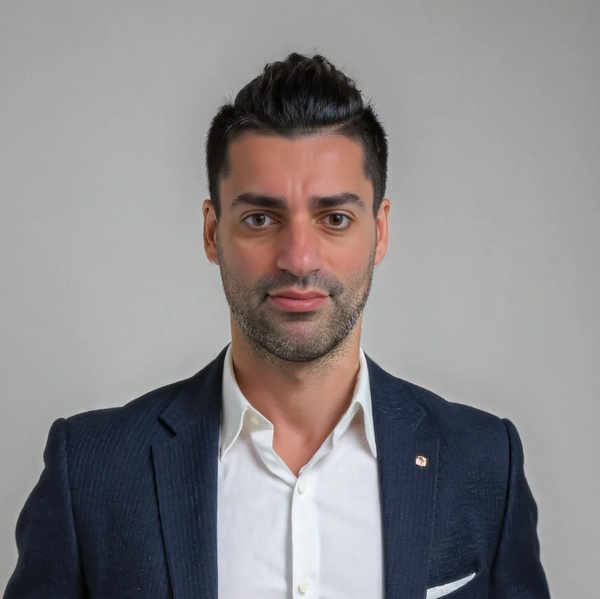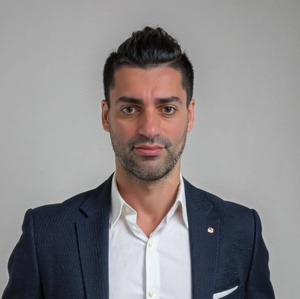Dr. Claude Pinnock, MD MPH, is a physician-executive who has driven strategic growth and clinical innovation across healthcare, technology, and academia. As Chief Medical Officer at Wider Circle, he scaled the organization from a regional operation to a multi-state enterprise serving over one million members. His prior leadership roles at Meta and Stanford showcase his talent for forging trust across stakeholders and closing high-impact deals that advance sustainable, value-driven care models. We had a chance to interview Dr. Pinnock for Voices of Physicians.
1. How have your varied experiences shaped your leadership philosophy?
Whether non profit, big tech, startup or academia I always try to anchor to my core value: is the work I am doing in some tiny way moving humanity forwards. At Stanford, I learned the rigor of evidence and the patience of institutional consensus and processes; at Meta, I saw how velocity, scale, and narrative could drive global impact in days. At Wider Circle, I live with the messiness of real-world ops and business development—building trust with communities, iterating clinical models, scaling under resource constraints, and building things all as we go. These experiences have helped shape my leadership philosophy: be radically transparent, keep the mission front and center, create psychological safety so teams can thrive in ambiguity, lean into things you are less comfortable with, know when to help out and when to give folks room to breath and lead with strategy but kindness - you don’t need to be an asshole. Across every environment, I’ve found that investing in the people around me has always paid the highest return, whether in the role itself or the impact they go on to have elsewhere.
2. What makes scaling community-based care exciting and challenging?
It's exciting because it’s the closest thing I’ve seen to real health equity in action—meeting people in their neighborhoods, through relationships rather than transactions. At Wider Circle, we build clinical products that rely not just on data and tech, but on local navigators, cultural humility, and flexible payment models. The challenge is aligning incentives in a system that’s still biased toward procedural care and tertiary prevention (a sick care system), while proving ROI to payers who need actuarial confidence. But when you see a formerly isolated senior walk into a group visit and say, “I feel seen,” you remember why it’s worth it.
3. What does your day-to-day look like as Chief Medical Officer?
I often joke that I have 6 different jobs but its actually why I really enjoy being a CMO. One hour I’m in strategic negotiations with a health plan; the next I’m reviewing a protocol with our research team. I bridge our clinical design, product, and business development teams, guide PR messaging and marketing initiatives, and serve as our clinical face for investors, accounts and policymakers. It’s nonlinear and demands constant context-switching—but that’s what I love. I thrive in that interdisciplinary edge space where policy, clinical care, and business development intersect.
4. What did you take away from your time at Meta?
At Meta, I realized how powerful large scale social media platforms can be for public health—if wielded responsibly. Helping launch Vaccine Finder and WhatsApp campaigns that reached over 120 million people taught me the value of speed, scale, and the simplicity of good UX that is highly trafficked. I also saw firsthand the risks of misinformation and the limits of engagement in messaging and content where trust has been eroded. That’s where clinical humility and evidence had to meet user behavior and the right to free expression. I took away a deep appreciation for how challenging it is, to this day, to get that balance right and how much work has gone into moving us to a better place by many smarter people than I given the ridiculously large reach and number of interactions that occur every day across Meta platforms.
5. How has your international perspective shaped your innovation approach?
Working in the UK, Europe, and the Middle East gave me a global lens on what's truly essential in healthcare. In the NHS, where resources are not excessive, I learned to design for value and scale without waste. At ICHOM, I helped Middle Eastern systems adapt outcome measurement strategies in culturally congruent ways. Candidly, one of my biggest areas of frustration since I moved to America has been watching mistakes be made in the US system that have been made already elsewhere - coupled with the cultural need to start from scratch when building the solutions. All countries could do well by learning from other nations versus assuming that only they have the answers or the knowledge to come up with them.
6. How has living with MS shaped your leadership lens?
“Doctors don’t get sick” - I always knew that health isn't static— but given how I feel that day to day it really made it front and center, particularly thinking about folks with “invisible diseases” like myself. It's a fluctuating state negotiated daily. I try to bring that awareness into every policy, product, and team conversation. I advocate fiercely for designing with—not just for—patients, and I think deeply about invisible burdens in the workplace. It’s why I emphasize flexibility, transparency, and care in leadership. MS also gave me an intimate understanding of system navigation (painful), stigma (“but you look so well why can’t you do xyz”), and what it means to be vulnerable in a clinical setting. I took all that and focused it into trying to give back through my board work with the MS Association of America so I might help others with fewer resources at their disposal.
7. What advice do you give physicians exploring leadership?
You likely already have many of the skills but you need to get the experience to reframe it and do so with humility. Leadership requires letting go of being the smartest person in the room and embracing influence without necessary authority over hierarchical control. I tell physicians to get proximate to business problems, shadow non-clinical functions, and practice storytelling. The most effective physician leaders I’ve mentored are the ones who know how to listen deeply, frame the “why,” and translate between worlds—whether that’s product and patient, or boardroom and bedside. Finally and most importantly react with curiosity versus “I know best” ways of thinking.
8. What needs to happen to get more physicians into leadership?
The system has to reward it. That means protected time, leadership pathways not tied solely to academic promotion, and training in areas like finance, operations, and human-centered design. But culture change matters too—physicians need permission to be learners again. Many feel they need another degree to lead and that's the typical pathway and shouldn’t really be. I’d take the mentors, reps, and the place I had to practice non-clinical influence to get the experience over an MBA any day.

